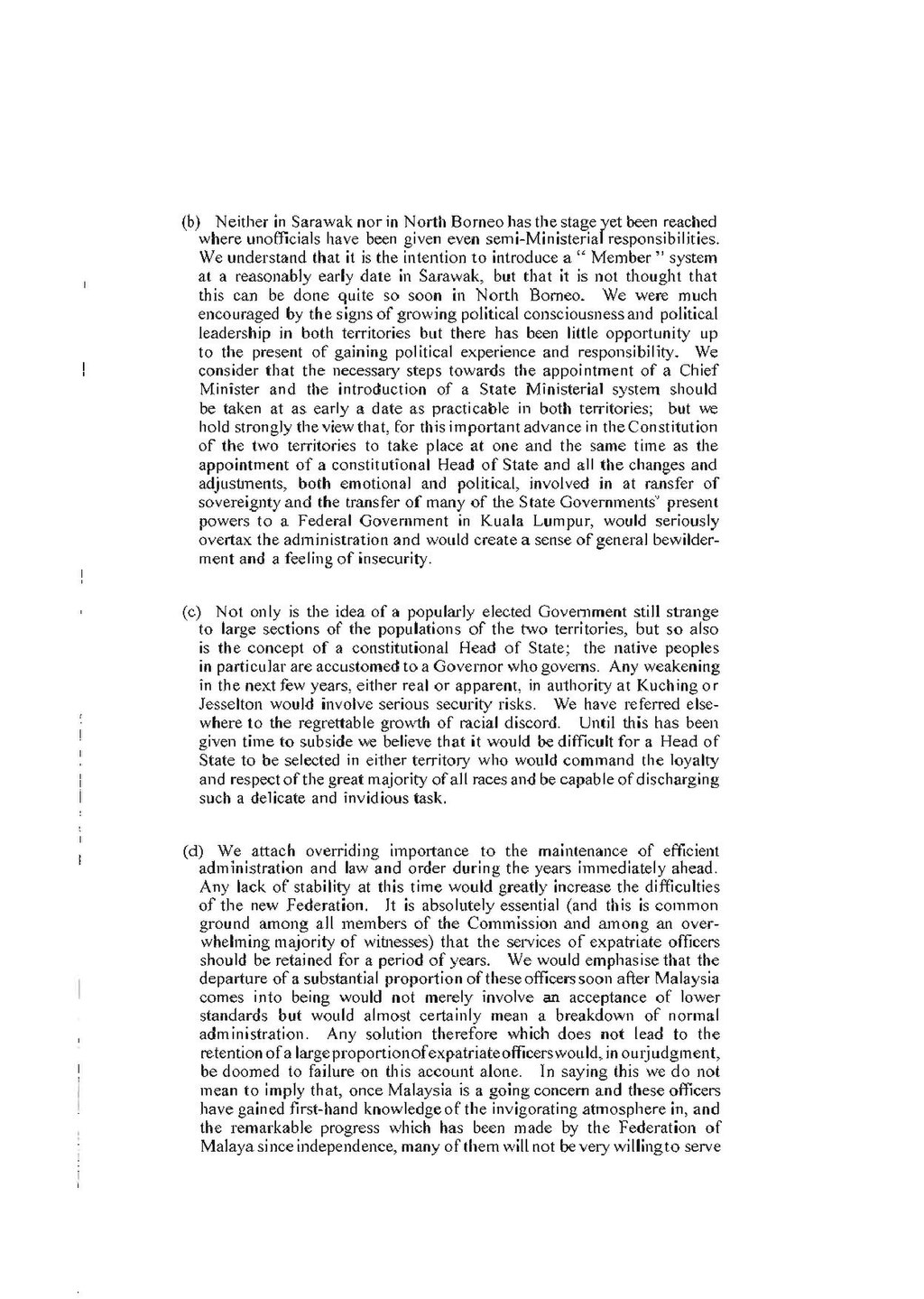This page needs to be proofread.
(b) Neither in Sarawak nor in North Borneo has the stage yet been reached where unofficials have been given even semi-Ministerial responsibilities. We understand that it is the intention to introduce a “Member" system at a reasonably early date in Sarawak, but that il is not thought that this can be done quite so soon in North Borneo. We were much encouraged by thee signs of growing political consciousness and political leadership in both territories but there has been little opportunity up to the present or gaining political experience and responsibility. we consider that the necessary steps towards the appointment of a Chief Minster and the introduction of a State Ministerial system should be taken at as early at date as practicable in boll. territories; but we hold strongly the view that, for this important advance in the Constitution of the two territories to take place at one and the same time as the appointment of a constitutional Head of State and all the changes and adjustments, both emotional and political, involved in at transfer of sovereignty and the transfer or many or the State Governments" present powers to the Federal Government in Kuala Lumpur, would seriously overtax the administration and would create a sense of general bewilderment and a feeling or insecurity.
(c) Not only is the idea or a popularly elected Govenrment still strange to large sections of the populations of the two territories, but so also is the concept or a constitutional Head of State, the native peoples in particular are accustomed to a Governor who governs. Any weakening in the next few years; either real or apparent in authority at Kuching or Jesselton would involve serious security risks. We have referred else where to the regrettable growth of racial discord Until this has been given time to subside we believe that it would be difficult for a Head of State to be selected in either territory who would commond the loyalty and respect of the great majority of all races and be capable of discharging such a delicate and invidious task.
(d) We attach overriding importance to the maintenance of efficient administration and law and order during the years immediately ahead. Any lack of stability at this time would greatly increase the difficulties of the new Federation. it is absolutely essential (and this is common ground among all members of the Commission and among an over—whelming majority or witneesses) that the services of expatriate officers shouid be retained for a period of years. We would emphasise that the departure of a substantial proporlion oftliese oflioeissooii ater Malaysia comes into being would not merely involve an acceptance of lower standards but would almost certainly mean a breakdown of normal administration. Any solution therefore which does not lead to the retention of a large propotion of expatriate officers would in our judgment be doomed to failure on this account alone. In saying this we do not mean to imply that, once Malaysia is a going concern and these officers have gained first—hand knowledge of the invigorating atmosphere in, and the remarkable progress which has been made by the Federation of Malaya since independence, many of them will not be very willing to serve
